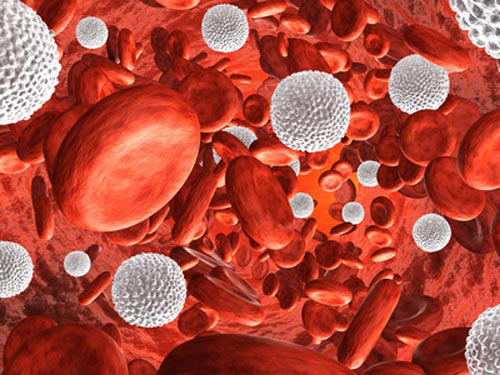Researchers at the Ottawa Hospital and the University of Ottawa have discovered in mice models that the process called trogocytosis plays a critical role in the battle between the immune system and blood cancer cells.
The findings are published in the journal Science Advances in a paper titled, “When killers become thieves: Trogocytosed PD-1 inhibits NK cells in cancer.”
“Trogocytosis modulates immune responses, with still unclear underlying molecular mechanisms,” the researchers wrote. “Using leukemia mouse models, we found that lymphocytes perform trogocytosis at high rates with tumor cells. While performing trogocytosis, both Natural Killer (NK) and CD8+ T cells acquire the checkpoint receptor PD-1 from leukemia cells.
The researchers led by Michele Ardolino, PhD, and his team discovered that when NK cells steal membranes from blood cancer cells, a protein called PD-1 comes along for the ride and puts the NK cell to sleep, shutting down their anticancer activity.
“NK cells are exceptional cancer killers, and we previously discovered that PD-1 prevents them from working properly,” said Ardolino, senior scientist at the Ottawa Hospital and assistant professor at the University of Ottawa. “A missing piece of the puzzle is how NK cells produce PD-1, which was surprisingly hard to address. Now we understand why: NK cells do not make their own PD-1, but they steal it from cancer cells! We don’t know exactly why NK cells steal membranes from cancer cells, but it seems clear that tumors hijack the process to put NK cells to sleep and evade the immune system.”
“Our results, in addition to shedding light on a previously unappreciated mechanism underlying the presence of PD-1 on NK and cytotoxic T cells, reveal the immunoregulatory effect of membrane transfer occurring when immune cells contact tumor cells,” the researchers added.


